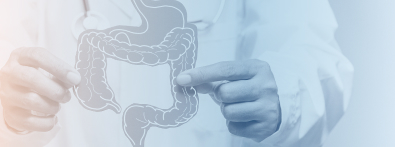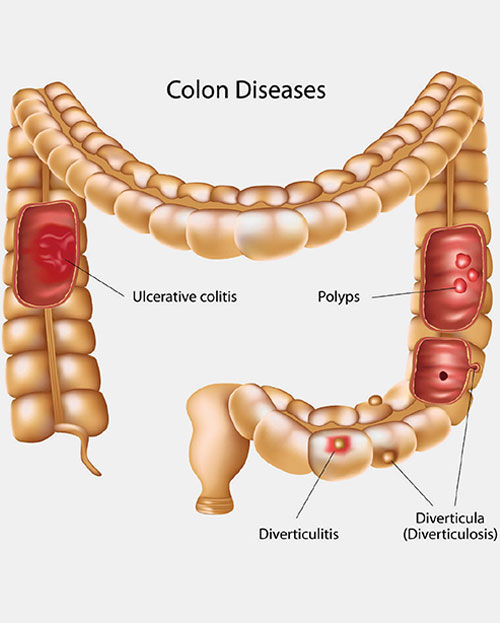Your Colorectal Health, Our Priority
With our comprehensive suite of screening services and treatment options, our experienced colorectal specialist and medical team promise you peace of mind whilst ensuring a strong and healthy colon.


Diverting Attention Downwards: About Diverticular Disease
Diverticulosis is a condition of the gastrointestinal tract where the stomach or intestine wall bulges out and forms a pocket known as a diverticulum (plural: diverticuli). Diverticulosis of the colon, therefore, refers to diverticuli forming in the colon as a result of weakness in the muscle wall of the colon, allowing the inner lining to bulge out between gaps in the muscle wall.
Diverticulosis is actually quite common in people aged 40 and above. However, only a small number of those with diverticulosis will ever experience symptoms from their condition, and an even smaller number would require surgery to treat it. Only when the diverticuli causes problems does the condition become known as diverticular disease and start requiring treatment.
Inflammation or infection at the area of the diverticuli is a common problem associated with diverticular disease. This may cause fever and pain over the area of the inflammation, as well as loose stools or diarrhoea. In severe cases, the infection may even cause perforation and abscesses that require hospitalisation and even surgery. There are occasions where the perforation from the colon extends into surrounding organs like the bladder, resulting in a fistula forming between the colon and bladder.
Another possible complication resulting from diverticular disease is internal bleeding of the colon, a problem that occurs more commonly in asian populations (as compared to Western populations). This happens when blood vessels at the edge of the diverticulum breaks and bleeds, causing either dark red blood or blood clots to be passed out along with stools. This differs from bleeding from more common conditions such as hemorrhoids in which the blood is fresh and bright red.
While it is not immediately clear what causes diverticular disease, it has been postulated that inadequate fibre in the diet causes a build-up of pressure in the colon, which then causes diverticuli to form in the colon. Once they form, taking a high-fibre diet does not reverse the condition, but such a diet may prevent more diverticuli from forming.
While infections resulting from diverticular disease may be treated with antibiotics in an outpatient setting - or, if the infection is more severe, with hospitalisation, bowel rest, intravenous drip and antibiotics - if the colon has been perforated, emergency surgery to remove that segment of the colon may be required. Surgery may also be necessary for people with recurrent episodes of diverticulitis or other complications that occur after an attack.
When surgery is performed, the segment of the colon affected by diverticular disease is removed while sparing the rectum. The colon is then joined back and the continuity of the intestines is restored. It is very unusual for a stoma (an artificial opening in the abdominal wall for faeces to pass out) to be required; it is likely that the patient will retain most of his/her bowel functions.

